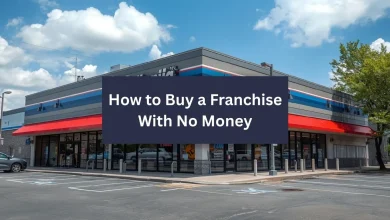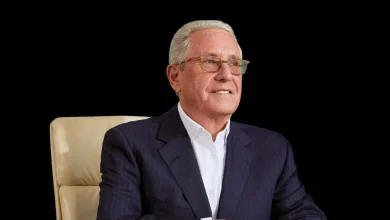How Do Rappers Make Money? A Deep Dive into the Modern Rap Industry’s Revenue Streams

In the world of rap music, making money has evolved from selling mixtapes on the street to building global empires powered by digital platforms, streaming services, and smart brand partnerships. From Old school hip hop music icons to modern giants like 21 Savage, Chance The Rapper, or entrepreneurial minds like Rob Level of Smart Rapper, today’s rap artists have a vast toolbox of monetization strategies.
But in a time when physical record sales are almost extinct and streaming platform payouts are fractions of a cent, how exactly do rappers make money in the rap industry?
Let’s explore all the major (and some surprising) ways they generate income.
🎵 Traditional Revenue Streams
Album Sales
Once the bread and butter of the music industry, album sales are now a shrinking revenue stream for rappers. However, exclusive digital sales, collector’s editions, and limited edition items can still bring in decent income — especially during high-profile album launches with pre-order bonuses or merch sales bundles.
💡 Example: Some artists include concert ticket sales or brand products with album purchases to boost numbers.
Digital Downloads
Though not as dominant as they were in the early 2000s, digital downloads through platforms like Apple Music and Amazon Music remain a useful revenue stream, particularly for independent rap artists who want to retain control.
Unlike streaming, downloads provide a one-time upfront payment.
Streaming Revenue
Rappers today rely heavily on streaming platform income from Spotify, Apple Music, Amazon Music, and other streaming alternatives.
💰 Streaming royalties are calculated via the mechanical royalty and public performance royalties, which are paid out to the copyright owner and the music publisher through performing rights organizations (PROs) like ASCAP, BMI, or SESAC.
📊 Spotify for Artists even shows revenue analytics and fan data—vital in today’s attention economy.
🎧 Fun Fact: Getting featured on Spotify’s RapCaviar playlist can lead to millions of streams overnight.
🎤 Performance Earnings
Touring and Live Shows
Live performances and concert tours are often the most lucrative income streams for rappers, especially for those with cult followings or viral hits.
Ticket sales for mid-size venues to stadium shows can range from $5,000 to $500,000+ per night, depending on popularity.
🎤 Rap battle events, MTV Awards, and music festivals like Rolling Loud are high-exposure platforms where rap music thrives.
Concert Earnings
Beyond just performing, artists often earn backend points from:
- VIP packages
- Afterparties
- Local promotion splits
- Online marketing of live-streamed events
🧢 Merchandising and Memorabilia
Brand Products
Many rappers turn their stage persona into a brand association—launching streetwear lines, colognes, or sneaker deals. This transforms them into lifestyle icons beyond just their genres of music.
👕 Online merch stores powered by Print on Demand allow independent artists to sell globally with zero inventory.
Limited Edition Items
Exclusive drops like signed vinyl, tour-only shirts, or lyric booklets boost merch sales—especially during album cycles or holidays.
🧢 Example: Artists like Blue Rhymez Entertainment have thrived using dropship models and music landing pages to push memorabilia.
📝 Publishing and Royalties
Sync Licensing
This refers to getting songs placed in:
- TV shows
- Video games
- Movies
- Ads
These placements can pay thousands to tens of thousands of dollars, and help rappers tap into market share outside of traditional music platforms.
🎮 Think: EA Sports games featuring hip hop music in the menu soundtracks.
Publishing Rights
A rapper who writes their own lyrical art owns both the artist royalties and the publishing rights—doubling their income.
📚 You need a music publisher or publishing administrator to register songs and ensure correct payouts through the royalty system.
Beat and Song Sales
Producers and rappers alike make money selling:
- Instrumentals
- Hooks
- Full songs
Sites like BeatStars, Airbit, and even YouTube channels offer a marketplace for buying and leasing music samples and beats.
🤝 Brand Collaborations and Partnerships
Endorsements
Major artists attract lucrative brand deals with companies ranging from beverage brands to tech products. These partnerships are based on:
- Social media following
- Streaming platform numbers
- Demographic appeal
Advertisements and Sponsorships
Some rappers monetize ad space on:
- YouTube channels
- Music videos
- IG Reels/TikToks
💡 Example: YouTube monetization pays based on views, ad engagement, and region — making viral music videos a cash cow.
👥 Fan Engagement and Crowdfunding
Fan Support Initiatives
Platforms like Patreon, Buy Me A Coffee, or custom music landing pages allow fans to directly fund projects, unlock exclusive content, or even book 1:1 sessions.
🎙 Rob Level from Smart Rapper has successfully used this to fund music and courses.
Crowdfunding Campaigns
Some artists raise full project budgets through crowdfunding campaigns on sites like Kickstarter or Indiegogo.
💸 Backers often receive rewards like signed merchandise, credit in music videos, or early access to new tracks.
Checkout: How to Make Money in One Hour
💼 Diversification of Income
Real Estate Investments
Artists often invest their earnings in real estate investments—buying properties, flipping homes, or leasing venues.
🏠 This stable income helps balance the volatile nature of music sales and tour revenues.
Business Ventures
From owning Venture Capital funds to launching cannabis brands, energy drinks, or clothing lines, many rappers turn fame into entrepreneurship.
Some even invest in tech startups or become angel investors.
More About: How to Make Money with Horses
🌐 Monetization via Online Platforms
YouTube Revenue
Many rap artists maintain active YouTube channels where they upload:
- Music videos
- Behind-the-scenes content
- Vlogs and interviews
🎬 Ad revenue, super chats, and sponsorships drive passive income here.
Music Libraries and Licensing
Artists also earn money by submitting music to music libraries, where content creators and filmmakers license their work legally. Great for background instrumentals or digital jukebox services.
Educational Content and Tutorials
Some rappers teach:
- Music lessons
- How to rap
- Music production
- Online promotion and branding
These are monetized through platforms like Skillshare, Teachable, or their own digital platforms.
🎓 Be warned: Always avoid scams or anything resembling a pyramid scheme—a growing concern in unregulated online learning spaces.
Read More: How to Make Money with Cattle
Final Thoughts
The modern rap industry is no longer just about spitting bars and selling CDs out of the trunk. With the explosion of streaming services, social media, and global brand partnerships, today’s successful rapper is also a tech-savvy entrepreneur, online marketer, and multi-platform content creator.
Whether you’re inspired by the hustle of Chance The Rapper, the branding genius of 21 Savage, or the teaching legacy of Rob Level, one thing is clear: there’s more than one path to making money as a rapper.
Frequently Ask Questions (FAQs)
Rappers earn money from streaming royalties based on how many times their music is played. Platforms like Spotify, Apple Music, and Amazon Music pay fractions of a cent per stream—typically around $0.003 to $0.005. While that seems small, millions of streams can generate significant income. For example, a song with 10 million streams might earn between $30,000 to $50,000, depending on the subscription tier, streaming platform, and the artist’s contract with their music publisher or record label.
While streaming revenue is essential, the most profitable revenue streams are usually:
– Touring and live shows (through high ticket sales and concert earnings)
– Merch sales from online merch stores or limited edition items
– Brand collaborations and partnerships such as endorsements and sponsored content
– Publishing and sync licensing deals that pay for music use in film, TV, or ads
– YouTube revenue and fan engagement platforms like Patreon
Yes. Independent rappers can make money through digital sales, streaming platform payouts, merchandising, live performances, and fan support initiatives. Many use social media, YouTube channels, and crowdfunding campaigns to market directly to fans. Artists like Chance The Rapper and Rob Level (Smart Rapper) have built strong independent careers using smart online marketing, avoiding traditional record label contracts entirely.
Rappers earn royalties through a structured royalty system, which includes:
– Mechanical royalties (from downloads and streams)
– Public performance royalties (from radio, live shows, and TV)
– Sync licensing fees (for use in movies, ads, and games)
– Artist royalties (from record sales and digital downloads)
Royalties are collected by performing rights organizations (PROs) like BMI, ASCAP, or SESAC, and distributed to the copyright owner and music publisher.
Absolutely. Many rap artists monetize their skills by creating educational content and tutorials. These might include lessons on writing bars, mastering lyrical art, music production, or navigating the music industry. Platforms like YouTube, Teachable, and Skillshare are popular choices, and some offer premium courses or ebooks on their music landing page. This strategy helps diversify income and build authority in the rap industry.



